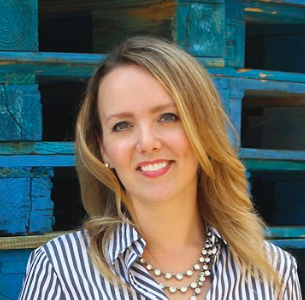
Imagine being among the pioneering women scientists — in this case, a physicist — in your twenties. Then, you realize that your doctoral dissertation is so remarkable that not only can your findings point the way toward accelerating the development of life-saving medicines, but your colleagues now want to start a business with you to scale the technology.
This swift progress has been a reality for Dr. Nabiha Saklayen, CEO and co-founder of Cellino. Her vision is to automate personalized, autologous cell therapies. Stem cell-derived therapies and regenerative medicines potentially could cure some diseases, including Parkinson’s, diabetes and heart disease. Using a patient’s own cells is by many accounts the safest and most effective way to regenerate healthy tissue for the person’s body. However, most autologous cell therapies are manual-labor intensive and come with costly laboratory overhead. Cellino is working to change this.
Cellino team members are experts in stem cell biology, machine learning and laser optics. They are on a mission to make personalized, autologous cell therapies accessible for patients. The process for patient-specific stem cell generation usually involves a highly skilled scientist working at a bench, looking at cells by eye and removing unwanted cells with a pipette tip. The company's approach connects different disciplines to automate the process.
The potential impact that Cellino’s novel biotechnology could have is herculean. And true, clinical trials may prove the technology is ready to scale and avoid the problems that led the fall of companies like Theranos as well as lesser known startups such as Laguna Pharmaceuticals and Revision Optics; nevertheless, the team advancing Cellino’s unparalleled technology will need to be matched with equally astute business leadership.
As Dr. Jennifer Doudna, Nobel Prize winning biochemist and founder of the International Genomics Institute (IGI), told Fast Company: “Being a brilliant scientist doesn’t automatically make someone a brilliant business person.”
To that end, IGI has teamed up with Tory Burch, a fashion designer and executive, to launch the Tory Burch Fellowship at the IGI. The one-year fellowship program is designed to support woman entrepreneurs in leading, growing and scaling up companies in the genomics field.
It may come as no surprise that Dr. Saklayen has been awarded the inaugural fellowship. What sets this program apart from other biotech fellowships is the emphasis the program places on business guidance and education. Dr. Saklayen will have access to $10,000 for business education; personalized coaching and mentoring sessions for fundraising; executive training for challenges including conflict resolution; and up to $50,000 for research supplies.
While Cellino has already secured $16 million in seed financing led by The Engine at MIT and Khosla Ventures on top of recent fellowships, the business guidance should prove to be useful as the average venture capital investment in biotech has more than doubled over the past decade.
As Dr. Doudna stated in Cellino’s recent announcement, "Part of our mission at the Innovative Genomics Institute is to be the bridge from research to real-world impact.” In the coming years, as Dr. Saklayen guides Cellino forward, bridging the gap between scientific theory and real-world impact will be critical. Securing more funding, while repeatedly conducing scientific testing in addition to launching public relations campaigns are monumental tasks that challenge many startups. Here’s hoping this startup and those supporting it can conquer the challenges and deliver life-saving therapies to people living with disease.
The Tory Burch Fellowship at IGI also sends a message to the scientific and business communities: Women are increasingly pursuing careers in STEM (science, technology, engineering and mathematics), yet women scientists often face many challenges and, in the long run, can benefit from the financial and professional support. More women are launching startups across many industries, but they score the necessary funding at a rate far lower than that of their male counterparts.
“Despite women’s groundbreaking research, discoveries, and achievements in science and technology, in 2019, only 35 percent of students enrolled in STEM coursework were women,” wrote U.S. Rep. Haley Stevens last month. “We must fund robust programs to create opportunities and training that lead to viable career paths in technology, engineering, health sciences, science policy, and academia — and we must do so in a way that builds a stronger and more diverse STEM workforce.”
Image credit: Artem Podrez/Pexels

Based in Michigan, Sarah is passionate about sustainability, storytelling and bringing to light sustainability principles that can be threaded into business strategies and communications. Formerly an editor for CSRwire and freelance writer for many organizations forwarding the principles of corporate social responsibility and circularity, she is excited to be a contributor to TriplePundit. Connect with Sarah on LinkedIn and Twitter.














